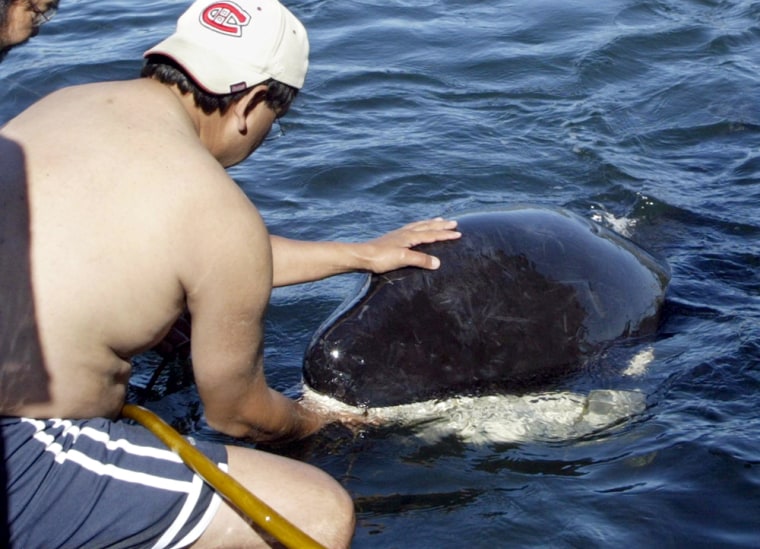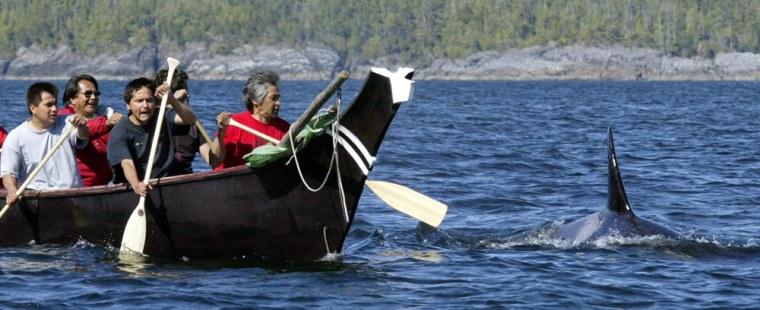An effort to reunite a young orca with its family has run into a major obstacle: native Canadians who believe the animal is the spirit of a dead chief and do not want it to leave its present spot.
Indians in dugout canoes led the killer whale out to sea off western Canada on Wednesday, thwarting attempts to have the orca, nicknamed Luna, follow a boat into a floating holding pen.
Luna became separated from his pod, or family, and arrived in Nootka Sound off British Columbia in 2001 at about the same time the chief of the Mowachaht-Muchalaht tribe died.
12 miles from holding pen
On Wednesday, Luna swam alongside the Indian paddlers, spinning over onto his back while some of the Indians patted his skin, rubbed his teeth and scratched his belly with hands and paddles.
“We hope to divert Luna away from capture,” said Mike Maquinna, chief of the Mowachaht First Nation. Maquinna said tribe members believe Luna embodies the spirit of his late father.
By the end of the day, Luna was about 12 miles away from the pen where he was supposed to spend the next week.
The tribe was planning to send more canoeists out to sea to keep Luna away from the pen. Canadian officials, meanwhile, were reviewing what to do.
Orcas, which are the biggest members of the dolphin family, play a major role in Indian culture along the Northwest Pacific Coast.
Near misses with boats, plane
The behavior Luna exhibited with the paddlers is exactly the kind of behavior that led officials with the Canadian Department of Fisheries and Oceans to try to get him out of Nootka Sound.
Now 5 years old, Luna became fond of folks in Gold River, a former mill town of 1,400 people on Vancouver Island, B.C., some 125 miles north of the U.S. border.
People often came down to the dock to see the lonely whale, who used to snoop around boat propellers and docks. One person even tried to brush the whale’s teeth.

This month, Luna surfaced in the path of a landing float plane.
Scientists feared the whale would injure himself or people and on Wednesday planned to begin a plan to reunite Luna with his pod.
If he can be taken to the pen, Luna will undergo medical tests and, if found healthy, he would be coaxed into a sling, crane-lifted into a container, placed on the back of a transport truck and then driven about 200 miles south to a bay near Victoria.
Once there, the plan called for him to be held in another net pen until his pod swims by. He then would be released with the hope he would set out to meet his family.
Whale experts believe that Luna is searching for human companionship because there are no other killer whales in Nootka Sound.
Scientists organizing the project admit that, because they do not know why Luna became separated, they do not know if the pod will accept him back. However, they insist the dangers of him of staying at his current location outweigh the risks of moving him.
